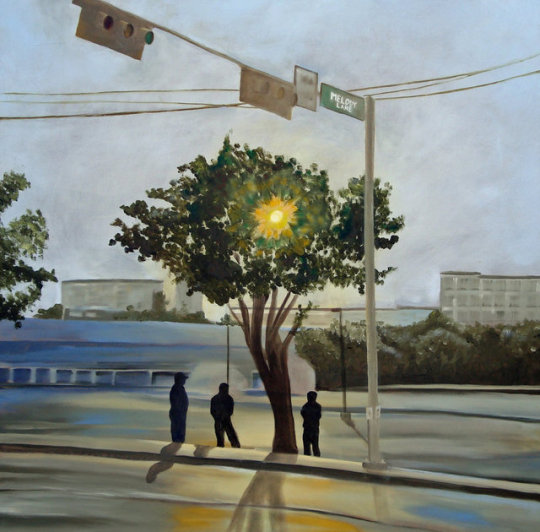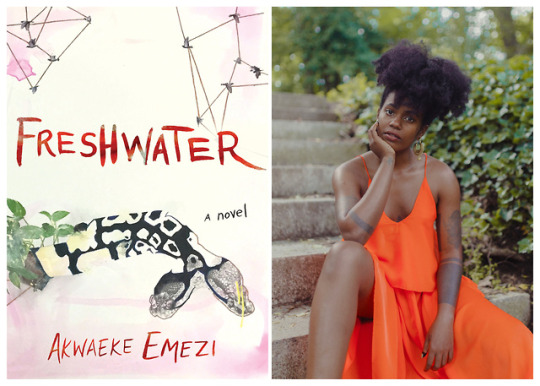#yshwa
Photo

The Nitty Gritty: Episode Eighteen
Artist: Yshwa
Album: Melody Ln.
Record Label: Self-released
Release Date: February 14 2017
The Nitty Gritty: Hoodie Allen is a rapper that I don’t like very much, although his last project was pretty solid. He makes a lot of cringy, unfunny, and painful jokes that serve no rhyme or reason, and he takes himself way too seriously, especially for a rapper of his caliber. His last project was a step in the right direction, but it still featured a lot of the problems that riddle his work. Thankfully, another rapper is basically a better version of Hoodie Allen. That’s Yshwa, a rapper that I just recently across thanks to YouTuber / reviewer Luke James (not the singer, which he mentions in his videos in a very tongue-in-cheek way). He reviewed his new project, Melody Ln, and I thought it would be worth checking out, especially from the way he described it – a very catchy, fun, and lighthearted project that doesn’t take itself too seriously and is more bent on being funny and silly. Yeah, that’s exactly how this record is, and what’s funny is that I feel the same way that James did on this record. It’s not bad at all, and Yshwa has some good flows on this thing, as well as some clever wordplay and interesting ideas, but it’s also pretty forgettable. The production itself is very lackluster, boring, and uninteresting. It’s not memorable, despite how solid Yshwa himself is. He’s got the bars and he’s got the lyrics to serve as a backbone to his sound, but what good is that when your sound is not that catchy or interesting? That’s the biggest problem of this record. It’s just not that memorable.
Would I recommend this? I can see people enjoying this, especially if you want something fun, silly, and lighthearted. Yshwa is good, because he doesn’t take himself too seriously. There’s one semi-political track here, “Gas Light,” and it’s all about the term of the same name, but he doesn’t go into a lot of detail about it, so it’s more or less up for interpretation. Regardless, though, this record is very fun, silly, and goofy. Think early Childish Gambino and Hoodie Allen. The only difference is that this is actually good, and Hoodie Allen isn’t. I mean, like I said, his last record was okay, but this is a bit better, because Yshwa has some better bars, and his lyrics are cleverer. At the same time, though, its production is pretty weak, so if you’re into beats, instrumentation, and production more than lyrics and bars, you might not like this much. I’m torn, because I like it, it’s just that the production doesn’t stand out. Luke James said it best, as he said that if Yshwa focused on his songwriting and production, his lyrics and bars would be more memorable and interesting. As it stands, though, this record is good, but it’s not great at all. It’s good for a few listens, but I can’t really find myself wanting to come back to this all that much. If you want an album that’s meant to be more fun and lighthearted, mainly filled with punchlines, check out the new Shabazz Talib album, Undergrad, which I just reviewed recently. That’s got a lot of catchy hooks, melodies, and memorable production, but I wouldn’t skip this, either. It’s worth a listen, but it’s a toss-up if you’ll really love it.
2 notes
·
View notes
Text
Mais uma da série retuitando, e dessa vez é o Twitter...
Eu, Paulo Fernando (@Paulo0369), trago aqui mais um dos meus twitters "bacanas"😅 - Passando aqui só pra lembrar que #YHWH é #YAHUAH e não #YAUH, #JAVE ou #JEOVÁ, e também lembrando que #YSHWA seria #YASHUA ou #YESHUA e não #JESUS😉 https://bit.ly/34grN6b
Passando aqui só pra lembrar que #YHWH é #YAHUAH e não #YAUH, #JAVE ou #JEOVÁ, e também lembrando que #YSHWA seria #YASHUA ou #YESHUA e não #JESUS😉 pic.twitter.com/5jfgh7jJLs
— Paulo Fernando (@Paulo0369) April 7, 2020
0 notes
Photo

Freshwater by Akwaeke Emezi
Ada has always been unusual. As an infant in southern Nigeria, she is a source of deep concern to her family. Her parents successfully prayed her into existence, but something must have gone awry, as the young Ada becomes a troubled child, prone to violent fits of anger and grief. But Ada turns out to be more than just volatile. Born “with one foot on the other side,” she begins to develop separate selves. When Ada travels to America for college, a traumatic event crystallizes the selves into something more powerful. As Ada fades into the background of her own mind and these alters—now protective, now hedonistic—move into control, Ada’s life spirals in a dangerous direction.
Written with stylistic brilliance and based in the author's realities, this raw and extraordinary debut explores the metaphysics of identity and being, plunging the reader intothe mysteries of self. Unsettling, heart-wrenching, dark, and powerful, Freshwater dazzles with ferocious energy and serpentine grace, heralding the arrival of a fierce new literary voice.
Publication Date: February 13th 2018
Date Read: June 12th-July 4th, 2018 (the length and writing style of this book makes it really easy to breeze through it but the content made me take multiple breaks)
Format: Hardcover, bought from Amazon
Length: 226 pages
Content Warnings: Self-Harm, Rape, Child Sexual Assault, Graphic Descriptions of Blood, Animal Death, Childbirth, Panic Attacks, Graphic Descriptions of Surgery and Open Wounds
Cover Rating: 5/5 Stars
Book Rating: 4/5 Stars
Summary (Not Spoiler Free)
This is a book about faith, religion, and self, full stop.
The main character is named Ada and she’s an ogbanje and a daughter of the mother goddess Ala. Ada has multiple spirits inside her body and the gate that brought the spirits into her body at birth was left open (broken), keeping her with one foot on the other side. Some of these spirits manifest as personalities, others are simply shadows inside her. Her most prevalent spirit is named Asughara and she manifests completely after Ada is raped in college. Asughara’s purpose is two-fold, 1. to make sure Ada (the person not the body) is never touched sexually by anyone ever again, and 2. to take Ada home to their mother’s womb (Ala’s womb is the underworld).
The different spirits interact inside Ada’s mind like (for lack of a better comparison) the emotions in Riley’s mind from Inside Out. They live in a marble room inside The Ada’s mind and each have control at different times. For a lot of the book after Ada’s rape, Asughara has taken almost full control of her body like Joy took control of Riley’s emotions. Asughara is a hypersexual, self-harming personality who’s aim is to torture those around her and kill Ada. The different personalities have to learn to get along and take care of each other and become one with themselves and with Ada. Ada is not human but a god stuck in a human form and this comes off as madness to those around her because gods are not meant to become flesh.
This story is about Ada coming to terms with herself. For most of the book Ada is hoping for Yshwa (Jesus) to save her, but at the end she begins looking to Ala for guidance instead. She realizes that Ala didn’t want her to return to her womb, but to her care (spiritually).
PoV: Plural and Singular First Person Peripheral
The Good:
Prose: I’ve never loved a writing style like I love Emezi’s. It’s beautiful and I’ve never read anything quite like it. Aspects of West African religion are so wonderfully woven into Emezi’s writing and she never diminishes one religion over another. Certain characters may feel lesser towards one or another but never the narrative. The narrative is very direct in saying “there are different gods and they want different things.”
Belief in Multiple Religions / Having Mixed Faith: Ada is Christian. Asughara is not. This plays out in interesting ways. Such as Ywsha coming into Ada’s mind to save her and Asughara telling him to get out then later growing more attached to him. It culminates in Ada realizing that what she needs Yshwa cannot give.
The way gods and different faiths and religions are shown is never derisive except in relation to colonization (called corruption)
Honest Representation of Apathy, Depression, and Multiple Personalities
Honest Representation of PTSD and Recovery
Honest Representation of Compartmentalization
Honest Representation of Genderfluidity and Gender-confusion
The Bad:
Prose: This wasn’t bad for me, but others might find the prose a bit confusing since for half of the book it’s in plural (We) and singular (Asughara) first person peripheral points of view. Basically Asughara goes back and forth between narrating her own actions and what Ada’s body is doing when Ada’s in-charge instead of her. It’s very confusing and hard to explain but I loved that and thought it was extremely risky and experimental but Emezi pulls it off really well in my opinion. However, I can see it being a turn off for others.
Graphic descriptions: See Content Warnings.
Timeline: The timeline jumps around based on the subject, so sometimes Ada’s an adult, other times she’s a child. And, even when she’s an adult it sometimes jumps from when she’s 16 to 23 back to 18.
Representation: #OwnVoices. Akwaeke Emezi is a mentally ill (ogbanje) Nigerian writer, of Igbo and Tamilian descent. The main character in this novel is based on her and her own experiences. Here is an article about how Emezi is tackling the taboo of mental illness.
Favorite Line: “It was all the same, a million mothers with a million names all flicking their quick tongues over the clear path to our spine.” Pg. 90
Bonus Favorite Line: “It was her first time kissing a white person, and briefly, she wondered why he didn’t have any lips.”
Would I Recommend? Only to people who like this kind of book. It definitely reminded me why I stopped writing stories that focus on mental and physical trauma. I tend to not read books that focus on them either except on rare occasions if I think the book will be exceptionally good. This was one of those rare occasions. The only times I had to put it down and walk away were when Ada was in the abusive relationship with Soren and Asughara was third-born. Other than that I finished it very quickly. It’s definitely not like anything I’ve ever read before and I loved it.
0 notes
Photo

Nova Receita Publicada http://receitasdatia.com.br/como-fazer/cozinha-de-jack-visita-sr-k-a-maravilhosa-cozinha-de-jack-s05e03/
Cozinha de Jack visita Sr K | A Maravilhosa Cozinha de Jack S05E03
Assista também:
Tucano e Sr K na Churrascaria Majorica
(EM BREVE)
Nossas Redes Sociais:
facebook.com/cozinhadejack
Instagram @cozinhadejack
Twitter @cancerjack
Snapchat cancer_jack
Redes Sociais SrK:
youtube.com/jovemnerd
Twitter @sr_k_
Facebook.com/
Instagram @carstens
Redes Sociais Maria Cevada:
https://www.youtube.com/channel/UCy2qlnSmc2dsLgwKExLy6ig
Instagram @mariacevada
https://www.facebook.com/MariaCevada.com.br
http://www.mariacevada.com.br/
Trilha Sonora:
- Yshwa - Bitchezz instrumental;
- Marcelo D2 - Rio (Puro Suco);
- Juanitos - Mercy Mercy Baby;
- Juanitos - Soul Africa;
Casarão 1903
R. Marquês de Olinda, 94 - Botafogo, Rio de Janeiro - RJ
https://www.facebook.com/casarao1903/
0 notes
Text
Mais uma da série retuitando, e dessa vez é o Twitter...
Eu, Paulo Fernando (@Paulo0369), trago aqui mais um dos meus twitters "bacanas"😅 - E assim #YSHWA ao invés de #YASHUA (pronuncia antiga) ou #YESHUA (pronuncia moderna) virou #YESUS e #JESUS https://bit.ly/2xi1S1i
E assim #YSHWA ao invés de #YASHUA (pronuncia antiga) ou #YESHUA (pronuncia moderna) virou #YESUS e #JESUS pic.twitter.com/XNhCrL07Qo
— Paulo Fernando (@Paulo0369) March 22, 2020
0 notes